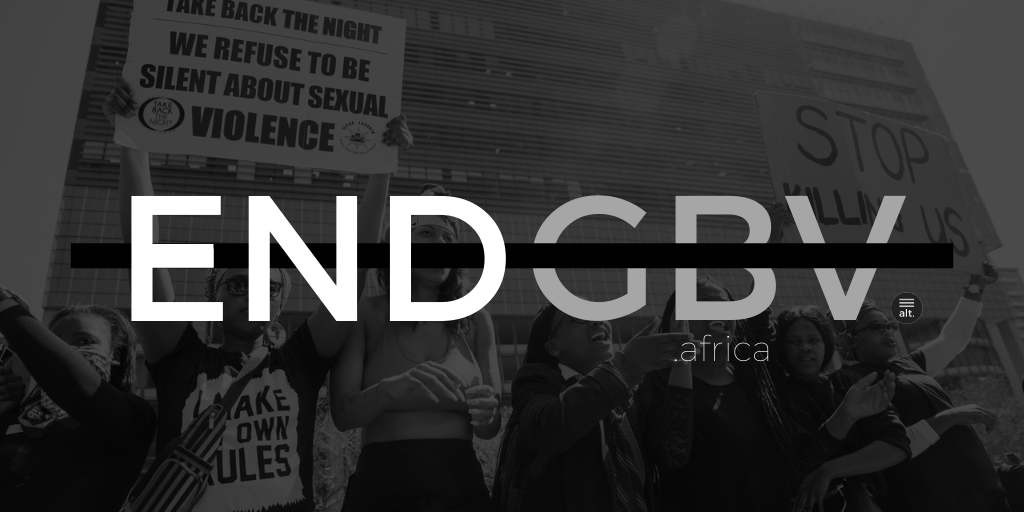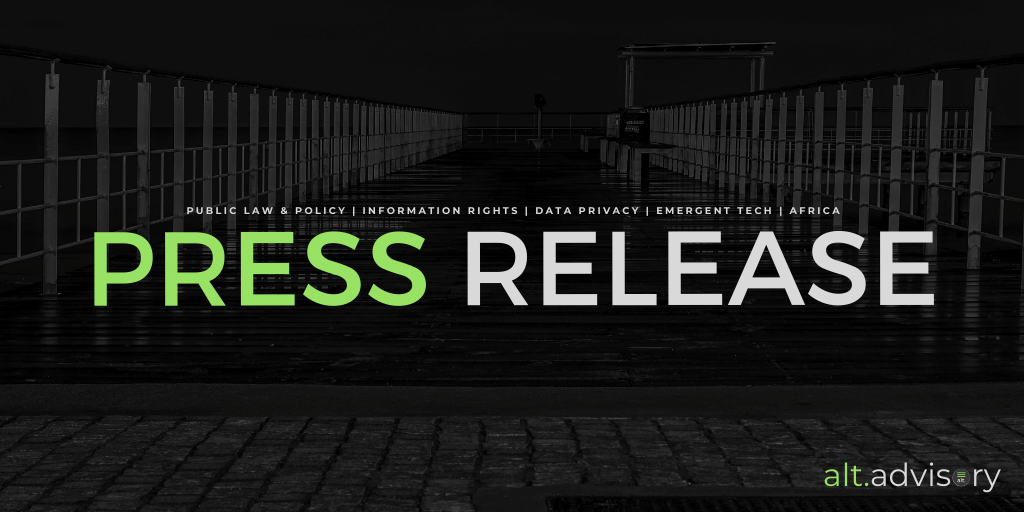ALT Advisory and Research ICT Africa make a joint submission on the Domestic Violence Amendment Bill
Johannesburg – On 9 July 2021, ALT Advisory, along with Research ICT Africa (RIA), filed a joint submission to the Select Committee on Security and Justice of the National Council of Provinces (Committee) on the Domestic Violence Act Amendment Bill (Bill). The submission was further endorsed by the Association for Progressive Communications (APC), Media Monitoring Africa (MMA), Chenai Chair, Samantha Malunga, and Mutondi Mulaudzi.
The object of the DVA Bill is to introduce amendments and additions of certain definitions, including the additions of coercive and controlling behaviour, and amendments to the definitions of harm, harassment, intimidation and sexual abuse and harassment. Additionally, the DVA Bill makes provision for online applications for protection orders by way of a secure online submission.
ALT Advisory, together with RIA, APC, and Feministing While African, previously made written and oral submissions on the Bill to the Portfolio Committee on Justice and Correctional Services of the National Assembly in October 2020 (accessible here).
As with the prior submission, the primary objective of this joint submission is to highlight that the proliferation of online harms, or harms facilitated, abetted, or aggravated by the internet, social media and the use of information communication technologies (ICTs) is of increasing concern as the use of new technologies grows. Accordingly, we emphasised the need for the DVA Bill to reflect these emerging and developing challenges to ensure victims and survivors of domestic violence, both on- and offline, are afforded the maximum protection the law can provide.
We commend the amendments already made to the Bill, some of which reflect our previous submissions about the role of technologies in facilitating or enabling domestic abuse. For example, the definitions of electronic communications, emotional, verbal, or psychological abuse, harassment, and sexual harassment were amended to more robustly refer to ICT facilitated harms. However, we have now implored the Committee to go further in order to bolster the Bill’s ability to respond to the evolving nature of domestic violence, the increasing prevalence of domestic violence online, and the rapidly progressing capabilities of ICTs.
We therefore submitted that the Committee recognise the broad considerations of intersectionality and accessibility in its consideration of the Bill, ensuring that the multiple and intersecting forms of discrimination which can intensify experiences of domestic and gender‑based violence are taken cognisance of, and that the Bill recognise the remaining constraints on digital accessibility in South Africa which may limit victims and survivors’ ability to access digital tools that support the protection order process. We also raised the Bill’s predominant use of binary pronouns, encouraging the more inclusive use of non-binary terms to ensure that all persons are equally protected.
In asking the Committee to further consider how to protect against domestic violence in a digitalised environment, we reiterated that the definitions of certain conduct that falls under the umbrella term of domestic violence should more clearly encompass abuse and violence facilitated by ICTs. For example, we submitted that coercive behaviour can also be conducted through or in respect of electronic communications, and that controlling behaviour should include controlling electronic devices or limiting access to electronic devices without consent.
Further to this, we made several submissions as to how victims and survivors of online domestic violence can and should be further protected under the law:
- Separating the disclosure of a complainant’s sexual orientation in the definition of emotional, verbal, or psychosocial abuse from that of other private information in order to recognise the specific harms and discrimination that can be attached to the disclosure of a person’s gender, gender identity, sexual identity, sexual orientation or perceived sexual orientation;
- Incorporating two additional examples of harassment and sexual harassment that more clearly illustrate the evolving nature of harms and violence that may occur in the digital environment, notably – the non-consensual distribution or manipulation of images, audio or video recordings (a growing trend in which manipulated or simulated images, video or audio, colloquially referred to as “deep fakes,” are disseminated and which can cause immense harm even when they are digitally created); and online impersonation, in which harassers either impersonate a complainant online or create accounts in another person’s name without consent in order to harass the complainant; and
- Recommending the inclusion of threats disseminated via electronic communications under the definition of intimidation.
We further commend amendments in relation to the proposed establishment of an integrated electronic repository as well as the proposed directives reference to consultation with the Information Regulator in order to ensure compliance with the newly effective Protection of Personal Information Act (POPIA). We note that the directives will likely play an important role in the practical functioning and safety of the repository. Accordingly, we provided submissions on key factors to be considered in the development of the directives.
Through this submission, we hope to see the strengthening of the Bill in order to respond adequately to the rapidly evolving nature of online communications and new technologies to fully protect victims and survivors of domestic violence both on- and offline.
The joint submissions can be accessed here.
__________________________________________________________________________________________
Press contact
Tina Power
Senior Analyst, ALT Advisory
+27 11 268 6881
*****
Kristophina Shilongo
Researcher, Research ICT Africa
+27 21 447 6332



